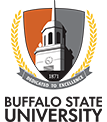Student Advisement
The History and Social Studies Education Department takes academic advisement very seriously and has implemented a number of strategies for improving the overall level of advisement for our majors.
Student Advisement Strategies
Departmental Advisement Committee
A Departmental Advisement Committee comprised of three faculty and one student. This committee is charged with overseeing advisement in the department, making recommendations for changes for improvement, and assessment of advisement.
Information Board
Posting the names of all of our majors and their advisors on the board immediately next to our office door (Cassety Hall 302). Students are routinely referred to the board for information regarding who their advisor is, and where to find him/her.
Informing Students
Letters are sent to every student who enters the program, informing them that their first responsibility is to seek out and make an appointment with their advisor.
Maintaining Contact
Contact with majors is maintained by e-mail (as far as is practicable, and as current technology permits) informing them of advisement periods, opportunities for group advisement, etc.
Group Advisement
Group Advisement sessions are scheduled each semester. Some students need intensive, face-to-face advisement, but at times, some students just need to be reminded of the broader requirements of the program. Group advisement allows those students to perform checks on their status, and can pave the way for more personalized advisement with their own advisors.
Advisement Scripts
We have written two advisement “scripts” which lay out the requirements of our two major programs. These will be completed in time for Orientation and will be linked to the department website. The videos start and end with the statement that the video is not a substitute for personal contact with an advisor (and there will be instructions on how to find out who their advisors are) and that each student should seek out their advisor.
Faculty Responsibility
Each faculty member is instructed to keep a running tab of the number of times he/she advises each semester. Advisement can be defined as any communication (verbally or via e-mail) in which a faculty member instructs a student on college policy, course selection, job opportunities, career advice, personal problems, etc. We believe that advisement can take many forms and can be anything from a casual conversation in the hall to a full session that involves the deepest of conversations. In practice, this means that advisement is ongoing, and not confined to assigned advisor/advisee exchanges. Our department believes that this is a vital, organic form of advisement that is not adequately comprehended or referenced in current assessment models. Faculty are asked to include those numbers in their annual reports, and my annual report for the department will include a section regarding the numbers and the overall success of our advisement initiatives. Over time, we will be able to use those numbers to discern trends which will help us assess advisement.

